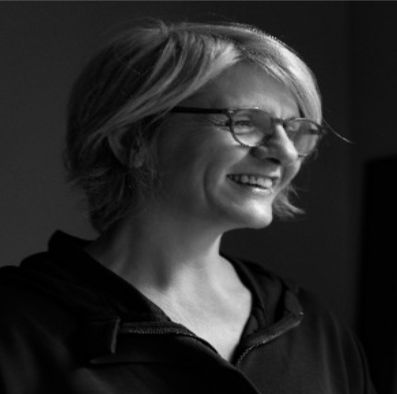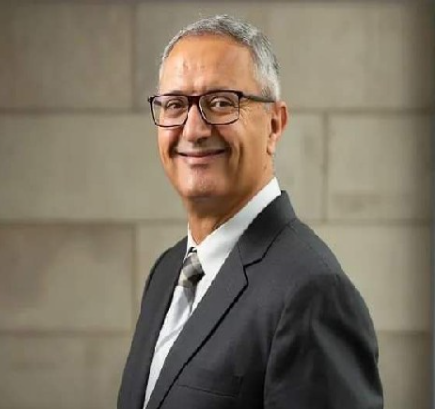





7th International Conference NGNS on
New Generation Digital Systems
NGDS'23
Casablanca-Morocco
13-15 July 2023
Speakers

Ismail Khalil
Institute of telecooperation at Johanes Kepler
University Linz,
Austria
Talk: Next Generation Digital Systems: The Convergence of AI, Blockchain, and Quantum Computing
The world is rapidly evolving towards a digital future, with advances in technology transforming the way we live, work, and learn. The convergence of artificial intelligence (AI), blockchain, and quantum computing represents a significant leap in the development of digital systems. This talk will explore the impact of these cutting-edge technologies on education, economy, finance, and health. AI has already started to revolutionize the education sector by offering personalized learning experiences and automating administrative tasks. In the economy, AI is transforming the way we work, enabling businesses to make data-driven decisions and automate processes. Meanwhile, blockchain technology is transforming the financial sector by providing a decentralized and secure platform for transactions, while quantum computing is unlocking new possibilities in areas such as drug discovery and cryptography. The talk will discuss the benefits and challenges associated with each of these technologies and explore their potential applications in education, economy, finance, and health. Furthermore, it will highlight the need for a multidisciplinary approach to harness the full potential of these technologies and address ethical and societal concerns. The talk will conclude by providing insights into the intersection of AI, blockchain, and quantum computing and their impact on the future of digital systems. The talk will be of interest to anyone interested in the future of technology and its potential to transform our lives.

Said Hamdioui
Delft University of Technology
Computer Engineering Laboratory
Mekelweg 4, 2628 CD
Delft, the Netherlands
Talk: IC Technology and computing: Past, present, and future.
No one can deny the fact that we rely heavily on electronic systems in our daily life. It is almost impossible to imagine a day without your smart phone, computers, TV or even our coffee- machines. Without electronics, business/work couldn't continue any more, the quality of education would degenerate, and the life quality probably turn back to the 18th century. Moreover, the wide spread of internet being able to generate huge data sets, combined with the introduction with powerful computing platforms (e.g., GPU based) being able to deliver significantly high computing throughput, have enabled the deployment of Artificial intelligence (AI) starting from 2010 on. AI has now evolved into a technology that is revolutionizing the world in many application domains. Electronics are made accessible and affordable for almost everyone in the globe due to technology scaling, and the deployment of AI for real applications is made feasible due to advances in computer architecture hardware. Nevertheless, both the technology scaling and computer architectures are facing major challenges calling for new innovations and breakthroughs in order sustain and extend the use of electronics and AI at large, but then at affordable cost. For instance, IC scaling is making the devices less reliable, while deploying AI for edge applications is extremely demanding in terms of energy efficiencies that today’s computer architectures cannot deliver. This talk addresses the CMOS device technology scaling as a financial model and its impact on different aspects of IC, as well as emerging device technologies and their potential in enabling alterative computing paradigms. The talk starts first with highlighting the fundamental invention that made the electronic system a reality: from transistors to Integrated Circuits (ICs). Then, the talk addresses the basics of scaling, together with its impact on integration density, performance, power and in particular reliability. Thereafter, the technology outlook is analyzed in order to extract future challenges, both for near and long terms. IC realization process will be (re)defined while considering the technology trends and business pressure, and ways for the realization of future chips will be discussed. The talk thereafter gives an overview of emerging devices and how they will enable not only huge storage but also energy efficient computing paradigms needed to deploy AI at large (e.g., for edge Internet-of-things (IoT) devices). The major bottlenecks of today’s computer architectures will be highlighted. A classification of the sate-of-the art computer architectures will be given while highlighting how the trends is going toward computation-in-memory (CIM) architectures. The concept of CIM based is discussed and logic and arithmetic circuit designs using such devices and how they enable such architectures are covered. The strong dependency of application domains on the selection of appropriate CIM architecture and its building blocks, as well as the huge potential of CIM (in realizing order of magnitude improvement in terms of energy efficiency) are illustrated based on some case studies and chip prototypes. Future CIM challenges including architectures, design, test, and reliability are highlighted.

Véronique Moncada
Director of International Development
IAE Aix-Marseille Graduate School of Management
France
Talk: Intercultural Stereotypes Generated by Artificial Intelligence: Understanding and Mitigating Biases.
The main objective of this talk is to raise awareness about the existence of intercultural stereotypes in AI systems and encourage critical reflection on their impact. We will examine the reasons behind the occurrence of these stereotypes. We will also explore the potential consequences of intercultural stereotypes generated by AI on marginalized groups and the broader implications for diversity, equity, and inclusion. Concrete examples and case studies will reveal existing biases and highlight the risks of perpetuating harmful stereotypes in automated systems. Finally, we will discuss possible strategies to mitigate these biases and utilize AI in a more ethical and inclusive manner. By participating in this conference, attendees will gain a better understanding of the issues related to intercultural stereotypes generated by AI and will be able to contribute to informed discussions and innovative solutions to promote responsible use of AI in our multicultural society.

Samir Trabelsi
Brock University
Canada
Talk: The impact of disruptive innovations on transparency and governance.
The keynote will focus on the reasons why FinTech, financial technologies, are crucial for sustainable development and the measures regulators and governments should take to develop a comprehensive strategy to support digital financial transformation, promoting both financial inclusion and sustainable and balanced growth more broadly. It addresses the following questions: why should we focus on FinTech; what is their connection to financial inclusion what are the impacts of disruptive technologies on board of directors’ fiduciary duties; and what is the link between FinTech for financial inclusion and sustainability, a key criterion of the United Nations Sustainable Development Goals (UNSDG). Economies have a vested interest in developing digital financial transformation strategies, with a focus on the role of FinTech in financial inclusion, as it represents a significant potential solution to the most important and challenging question: how should economies go about achieving sustainable development goals? Digital financial inclusion is one of the most important answers to the question of how regulators and governments should achieve the SDGs.

Abdelmajid Ibenrissoul
ENCG Casablanca
Hassan II University
Talk: The decision: the evolution of a multidisciplinary concept
Whether it is a concept, a theory or a simple practice, whether it comes from economics, management, finance, sociology,
mathematics or even psychology, decision has caused many ink in the West, and this, at least since the 18th century with the famous Paradox
of St Petersburg by D. Bernouilli. For some researchers in the West, we can speak of decision sciences, sciences which bring together a
scientific community where we find mathematicians, economists, managers, anthropologists, sociologists, psychologists, and many computer
scientists, etc. . In reality, there is no other concept that is at the crossroads of so many disciplinary fields, and that is as studied as the
decision. This communication proposes to retrace the evolution of this concept in an abstract way. The aim is to show that in the various
disciplinary fields mentioned above, there are common visions of decision-making, decision-making models underlying the theories and
models developed within these disciplinary fields. To do this, this communication will be organized as follows:
In a first point, we will see the classical decision model, a model underlying neoclassical economic theory, financial theory, and unicriterion
operational research. We will see what are the different forms it takes within these disciplinary fields, and how it itself has evolved;
Secondly, we will look at the questioning of this model by H. Simon (Nobel Prize in Economics in 1978). We will insist on two
consequences of this questioning. On the one hand, on the paradigm shifts that have occurred within operational research thanks to the
development of Multicriteria Decision Aid, and within economics thanks to the introduction of a new methodological approach that is
experimental economics. On the other hand, on the introduction of artificial intelligence in decision processing. We will see how the work of
H. Simon has a lot to do with the development of Artificial Intelligence (Gobet 2002, Pitrat 2002), and its use in decision modeling.






